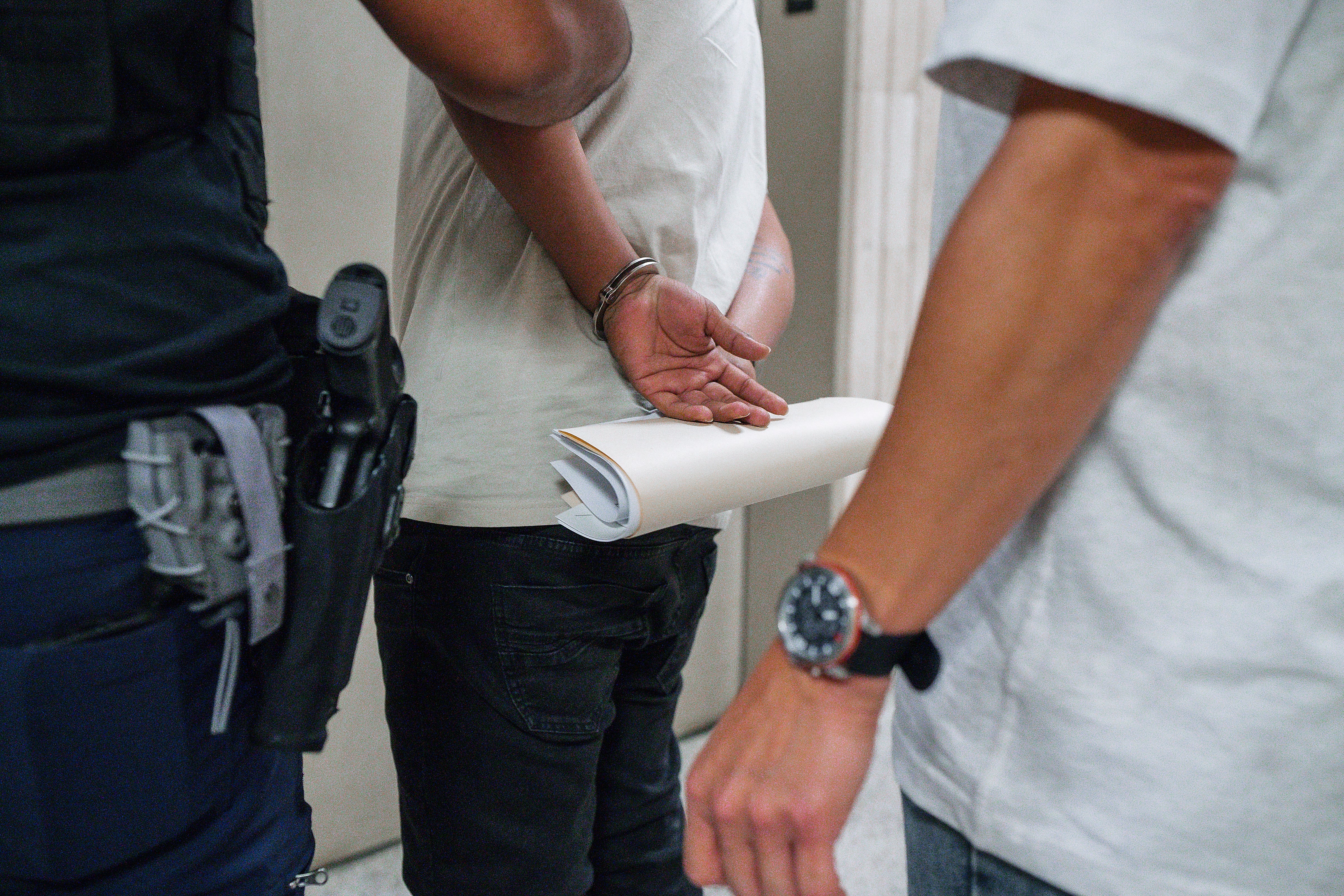After two days of motion hearings, a Navy officer accused of spying for Taiwan remains set for a late October court-martial. Attorneys for Lt. Cmdr. Edward Lin, who is facing charges of espionage, attempted espionage, disobeying orders and making false official statements, argued Aug. 8 and 9 in Norfolk, Virginia, that charges against Lin should be dismissed and that statements made to investigators should be suppressed.
The military judge largely denied a motion from Lin's team to dismiss all charges based on unlawful command influence, according to a readout of the proceedings provided by Navy officials, though a final ruling has not yet been made. The defense's motion accused the Navy of orchestrating a media hit job on Lin that biased potential jury members and judges, and scared off witnesses who might testify on Lin's behalf.
The judge also denied a motion to dismiss the charges on the basis that the government denied Lin his right to a speedy trial.
Lin, a career naval flight officer who is attached to a secretive maritime patrol squadron in Hawaii, has been held in pretrial confinement since his arrest at an airport last Sept. 11. After a preliminary hearing in April, a judge recommended Lin's case be referred to court-martial.
Lin, a Taiwan native who became a naturalized U.S. citizen in 1998, is accused of espionage and attempted espionage, including allegedly passing information to an undercover FBI agent, Lin's attorneys said in the preliminary hearing.
The judge is deliberating on defense motions to dismiss charges related to failing to disclose the compromise of classified materials.
At the San Francisco airport in May, airport security officers searched Lin's bags and found old Navy flight manifests. A Department of Homeland Security agent interviewed him and Lin claimed the records were stuffed in his flight suit from the previous year and he had never pulled them out.
Lin abandoned the records to the agents who said they would destroy them, but Lin never reported the compromise of the classified information. His lawyer argues that there is no duty to self-report because it would violate his Fifth Amendment right against self-incrimination, a precedent that has been upheld in cases tried under the Uniform Code of Military Justice.
The government argued that Lin violated established security procedures that govern classified information handling and ignored the reporting requirements for compromised secret-controlled information when he turned over the flight manifests to a third party — albeit agents from Homeland Security who told him they would destroy the records.
The defense asked a ruling be deferred on motions to suppress statements Lin made to investigators during two days of interrogation after he was arrested in the Honolulu airport last Sept. 11.
The government says that Lin signed a rights waiver to conduct the interview. But Lin's attorneys argue that an audio recording of the encounter indicates that agents didn't properly advise him of either the crimes he was suspected of or his right to an attorney. Furthermore they ignored Lin's request for clarification, even though the transcript says he did not have any questions, the motion says.
Lin's attorneys also argued that the investigators failed to fully advise Lin he was suspected of spying, which could have changed his mind about wanting to speak to a lawyer. The judge took the defense's motions "under advisement," according to the readout.
Another hearing is scheduled for September and the outstanding motions will likely be ruled on then, a Navy official said.
David B. Larter was the naval warfare reporter for Defense News.





